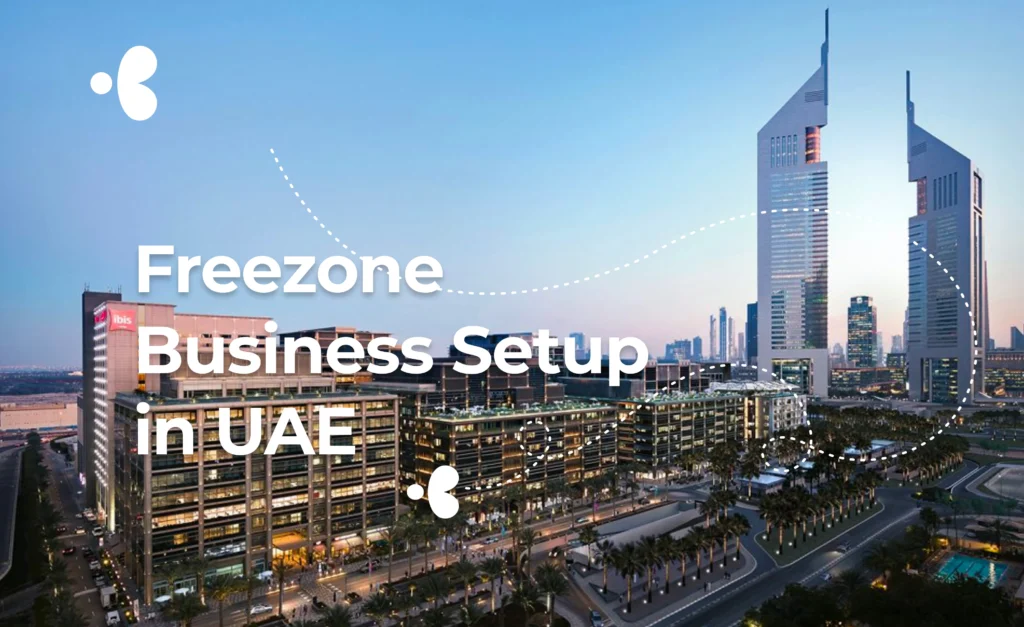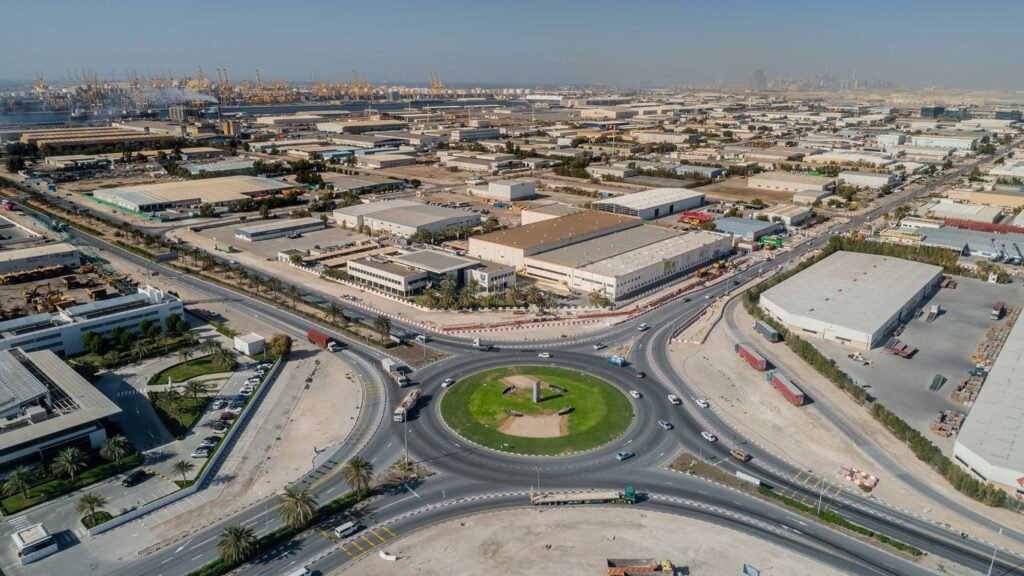
The Impact of UAE Tax on Free Zone Businesses
Table of Contents
Related Articles


Sugar Tax Reform Will Crush Small UAE Drink Brands

The Impact of CARF on UAE Crypto Traders | Ready to Report FTA

Let's Talk
Sign Up For Free Consultation
The Impact of UAE’s Tax System on Free Zone Businesses

The United Arab Emirates (UAE) has become a major international commercial hub in recent years, bringing in SMEs, big enterprises, and entrepreneurs alike. The existence of free zones, which provide companies with alluring incentives including 100% foreign ownership, tax advantages, and streamlined procedures, is a major contributing element to this rise. Nonetheless, the tax environment for companies operating in Free Zones is shifting as the United Arab Emirates modernizes its tax laws to conform to global norms. Any business hoping to optimize its benefits while maintaining compliance must comprehend the subtleties of the UAE tax structure and how it impacts Free Zone operations.
We’ll go into details of the tax system in the United Arab Emirates, its particular effects on firms operating in Free Zones, and how enterprises can strategically operate around these rules in this blog.
Why UAE Free Zones are Vital for Global Business

In the United Arab Emirates, free zones are special economic zones that provide various benefits to enterprises. These zones were established to encourage international investment, stimulate economic expansion, and broaden the country’s sources of income. Businesses established in free zones gain access to:
- 100% foreign ownership
- Full repatriation of profits and capital
- No customs duties on imports and exports
- Tax exemptions on corporate for qualifying income and personal income
While the traditional allure of Free Zones has been their exemption from UAE tax policies, recent developments, including the introduction of VAT (Value Added Tax) and Corporate Tax, are shaping the operational dynamics for businesses in these areas.
As the UAE aligns itself with global tax frameworks, companies must stay updated to ensure compliance and continue leveraging the advantages offered by Free Zones.
The Changing UAE Tax System and Its Implications

1. Corporate Tax and Free Zone Businesses
In 2023, the UAE introduced a federal Corporate Tax law, which marks a significant shift in the country’s tax landscape. The law applies a 9% corporate tax rate on profits exceeding AED 375,000 for mainland businesses, with Free Zone businesses generally remaining exempt under certain conditions.
However, Free Zone companies must meet specific criteria to maintain their tax-exempt status. Notably:
- Free Zone entities must not conduct any business activities in the UAE mainland, with some exceptions.
- Qualifying Income: Only certain types of income generated within Free Zones remain eligible for tax exemptions. This includes income from inter-Free Zone trading and activities conducted with foreign markets.
- Free Zone businesses engaged with mainland entities or conducting other taxable activities may be subject to the 9% corporate tax.
Understanding these rules is critical to ensure that your business complies with the new corporate tax regulations while benefiting from exemptions.
2. Value Added Tax (VAT) in Free Zones
The UAE implemented Value-Added Tax (VAT) in 2018, which imposes a 5% tax on the majority of products and services. Free Zone enterprises are subject to different VAT requirements based on their operations and the type of Free Zone in which they operate.
- Designated Free Zones: As per the UAE VAT law, some Free Zones are designated as “Designated Zones,” which implies that any transaction carried out in these zones is considered to be outside the UAE for VAT purposes. The transfer of goods within these designated zones is therefore exempt from VAT.
- Transactions with the Mainland: VAT is applicable to businesses in Free Zones that transact with mainland UAE businesses. Selling goods and services to clients on the mainland is included in this.
- Careful tax planning and strict adherence to VAT legislation are necessary for firms looking to minimize their VAT risks.
3. Excise Tax and Free Zones
The Excise Tax, which is charged on products like tobacco, sugar-filled beverages, and energy drinks that are bad for the environment or human health, is another significant tax in the United Arab Emirates. Businesses operating in free zones that import, hold, or sell excise items are subject to the excise tax laws.
Businesses who deal in excise items and operate within Free Zones must make sure they are registered and in compliance with the UAE Federal Tax Authority, even though excise tax predominantly affects particular industries.
4. Customs Duty and Free Zones
Businesses operating in free zones are exempt from customs duties on items imported into their zones. One of the main benefits of starting a business in a UAE Free Zone has long been this exemption. Still, it’s crucial to remember:
- Customs charges are exempt for goods imported into Free Zones and exported outside of the United Arab Emirates.
- A five percent customs tax will apply to products brought into the mainland of the United Arab Emirates from a Free Zone.
The interaction between the mainland and Free Zones emphasizes the importance of strategic planning for the import and export of goods.
5. International Tax Compliance and Free Zones
Businesses in Free Zones are subject to international tax requirements due to the UAE’s dedication to international tax standards and transparency. It is crucial to abide with laws such the Country-by-Country Reporting (CbCR) and the Economic Substance Regulations (ESR).
- Economic Substance Regulations: Free Zone businesses conducting relevant activities such as finance, leasing, or holding companies must meet substance requirements, which involve demonstrating that core income-generating activities are conducted within the UAE.
- Country-by-Country Reporting: Free Zone businesses that are part of multinational entities with consolidated group revenues exceeding AED 3.15 billion must adhere to CbCR obligations, providing financial data to the UAE Federal Tax Authority.
Staying compliant with these international tax obligations is vital to avoid penalties and ensure business continuity.
Maximizing Free Zone Tax Benefits through Strategic Planning

The benefits offered by Free Zones are still highly attractive, but to fully leverage these incentives, businesses need to adopt effective tax planning strategies. Here’s how companies can benefit:
1. Maintaining Tax-Exempt Status
- Ensure that your business does not conduct any activities in the UAE mainland, unless permitted under specific exemptions.
- Regularly review the UAE’s tax laws to ensure continued compliance with the corporate tax exemption criteria.
2. Optimizing VAT Liabilities
- Understand the VAT implications of transactions with the mainland and carefully plan your supply chain to minimize VAT costs.
- If you operate in a Designated Free Zone, ensure proper documentation is maintained to benefit from VAT exemptions.
3. Customs Duty Planning
- If your business involves significant import/export activity, leverage the customs duty exemption within Free Zones while planning strategically for transactions with the mainland.
4. International Compliance
- Ensure that your business complies with ESR and CbCR regulations to avoid penalties.
- Consider conducting regular tax audits to ensure compliance with both local and international tax regulations.
Partner with Experts to Navigate the UAE’s Tax System

Negotiating the dynamic tax environment in the UAE can be a formidable task, especially for enterprises operating in free zones. Thorough planning and extensive understanding are essential to adhere to the tax regulations relevant to international tax compliance, company tax, VAT, and customs duties. Specifically, Tulpar Global Taxation specializes in providing comprehensive tax consultancy services to firms operating in UAE Free Zones. Our team of tax experts ensures constant compliance for your company and maximizes the benefits of operating in a free zone.
- Our customised tax planning services assist you in effectively negotiating the UAE tax system, guaranteeing that your business adheres to corporate tax rules while preserving its tax-exempt status.
- VAT Optimization: Our experts offer consultancy services focused on VAT planning and compliance to reduce your VAT obligations.
- Our services include facilitating international tax compliance by helping you adhere to worldwide tax regulations, such as ESR and CbCR requirements, therefore protecting your firm from potential penalties.
- Customs Duty Solutions provides specialised guidance on customs duty planning, enabling you to tailor your supply chain for optimal effectiveness.
Partner with us today to ensure that your Free Zone business stays ahead in a competitive market while remaining compliant with the UAE’s tax system.
Conclusion
The tax system of the UAE has transitioned to align with international tax norms, and enterprises operating in Free Zones must adjust to these modifications in order to sustain the numerous advantages provided by these zones. Through comprehensive knowledge of corporation tax, VAT, customs charges, and international tax compliance obligations, firms may proactively strategize their operations to ensure compliance and optimize profitability.
Expert advice is crucial for both new businesses establishing themselves in a Free Zone and established companies seeking to manage their tax position effectively. To obtain tailored tax solutions that are in line with your business objectives, please contact our experts at Tulpar Global Taxation.
The UAE tax system has evolved with the introduction of VAT and Corporate Tax, directly impacting Free Zone businesses. While Free Zones still offer attractive incentives, they are no longer completely tax-free. Compliance and proper structuring have become essential for maintaining benefits.
Yes, all Free Zone companies must register for Corporate Tax and file returns. However, eligible businesses may benefit from a 0% Corporate Tax rate on qualifying income if they meet the conditions of a Qualifying Free Zone Person (QFZP). Non-qualifying income is subject to standard Corporate Tax.
QFZP status allows Free Zone businesses to apply a 0% Corporate Tax rate on qualifying income. To qualify, companies must meet substance requirements, conduct qualifying activities, and comply with transfer pricing rules. Failure to meet these conditions can result in loss of benefits.
Free Zone companies are subject to VAT rules like Mainland businesses. VAT applies based on the nature of transactions, not location. Even businesses in Designated Free Zones must charge VAT on services and certain goods transactions.
Designated Free Zones are treated as outside the UAE only for VAT on qualifying goods under strict conditions. Services are always subject to VAT. Many businesses misunderstand this, leading to compliance errors and FTA audits.
Yes, Free Zones still offer significant advantages such as 100% foreign ownership, profit repatriation, and potential 0% Corporate Tax on qualifying income. However, these benefits are conditional and require ongoing compliance. Strategic tax planning is now critical.
Free Zone businesses must now maintain stronger accounting records, file VAT and Corporate Tax returns, and prepare audit-ready documentation. Regulatory scrutiny has increased, making proactive compliance more important than ever.
Common risks include assuming tax exemption, incorrect VAT treatment, poor documentation, and failing to meet QFZP conditions. These mistakes often result in penalties and reassessments. Professional guidance helps mitigate these risks.
Income earned from Mainland transactions may be considered non-qualifying and subject to Corporate Tax. Proper structuring and contractual arrangements are required to manage tax exposure. Each transaction must be reviewed carefully.
Expert tax advisors help Free Zone companies assess eligibility, structure operations, and ensure full compliance with VAT and Corporate Tax laws. Working with Tulpar Global Taxation helps businesses protect Free Zone benefits, reduce tax risk, and stay audit-ready.
